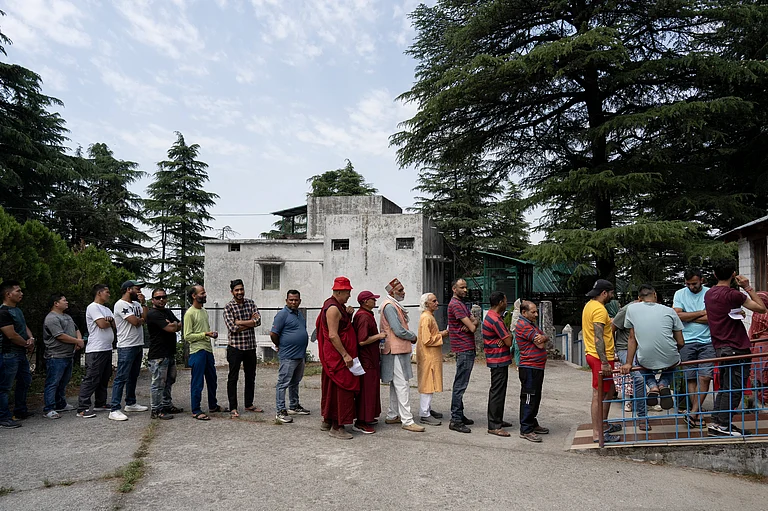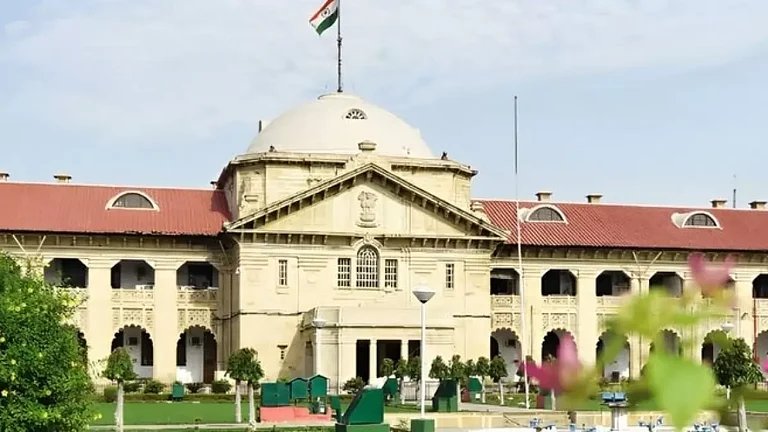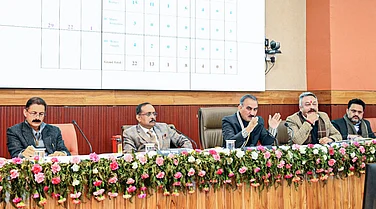The Supreme Court on Wednesday heard petitions to decide if sub-classification of the SCs and STs is constitutionally permissible. Headed by the Chief Justice of India D Y Chandrachud, the Bench examining the validity comprises Justices B R Gavai, Vikram Nath, Bela M Trivedi, Pankaj Mithal, Manoj Misra and Satish Chandra Sharma. The Bench is reconsidering its decision in the EV Chinnaiah vs State Of Andhra Pradesh case (2004), where a five-judge bench struck down the possible creation of sub-classifications within the SC category which would violate Article 14.
EV Chinnaiah vs State of Andhra Pradesh case
In 2004, the top court was dealing with a law passed by Andhra Pradesh government based on the report of the Justice Ramachandra Raju Commission, which recommended sub-dividing the Scheduled Castes into four groups and allocating reservations separately for each. This was to ensure that all communities within the Scheduled Castes, particularly those that have been oppressed, marginalised and historically deprived of the opportunities of education and formal employment, receive equitable representation in educational institutions and state services.
According to the judgement, SCs were a “homogenous group” owing to the commonality of their experience, and could not be sub-classified under the Constitution and drew attention to Article 341 of the Constitution which gives the President the power to create a list of SC communities for the purposes of reservation, which the legislation would further tinker with.
Davinder Singh vs State of Punjab case
The Bench will also decide on the validity of the SC judgement on the Punjab Scheduled Caste and Backward Classes (Reservation in Services) Act, 2006, which gave Balmikis and Mazhabi Sikhs “first preference” reservation over 50 percent of the total seats reserved for the Scheduled Caste (SC) category. Struck down by the Punjab and Haryana High Court in 2010, the government had moved the Supreme Court. In 2014, the Supreme Court in the ‘Davinder Singh v State of Punjab’, referred the appeal to a five-judge constitution bench to determine if the 2004 E V Chinnaiah decision required reconsideration, since interpretation of the constitution warrants a five-judge bench.
In 2020, a five-judge bench of the Supreme Court held that the the E V Chinnaiah vs State of Andhra Pradesh judgement which stated that State legislatures have no power to create sub-classifications among the list of Scheduled Castes notified by the President, was required to be revisited, identified the need for necessary sub-classifications and referred the matter to the Chief Justice for placing it before an appropriate larger bench to reconsider.
The centre's stand
The Centre’s submission, which was made by solicitor general Tushar Mehta, informed the court that it was in favour of having sub-classifications among backward classes, so that the more deserving sections among the disadvantaged communities can receive reservation benefits rather than the privileged layer. He referred to the five-judge Constitution bench ruling in the 2020 ruling which had justified the need for sub-classification of the SC and STs. Incidentally, the Centre’s statement in the apex court came on a day when Prime Minister Narendra Modi, while delivering his reply to the Motion of Thanks to the President’s address, accused that India’s first PM, Jawaharlal Nehru of being opposed to reservation for SC/ST and OBCs in government jobs, going to the extent of reading out a letter by Nehru to chief ministers in which the he had suggested that quota in public jobs could lead to inefficiency.
Mehta told the bench, "For the central government, we are committed to the reservation, we are here only on sub-classification, and this was the concern of the court. Allowing the sub-classification of SC/ST and other backward classes would grant both the central and state governments the necessary flexibility to formulate appropriate policies in pursuit of the constitutional goal of social justice, aimed at achieving de facto equality of opportunity.” He, however, clarified that if sub-classification was allowed, states could only identify the groups and that such sub-classification would only be given effect through a parliamentary legislation, following an approval of the President.
“The rationalising of reservations through enabling sub-classification of quota for SCs/ STs would further the guarantee of social justice and further enable the State to penetrate into the lower segments within the backward classes,” he further added.
Former attorney general KK Venugopal, appearing for one of the states, also remarked that unequals cannot be treated equally if the State wants to attain equality among all classes of citizens.
SC reserves judgement
The SC has reserved judgement after third day's proceedings. "They may be a class for a certain purpose. But, they may not be a class for all the purposes," the seven-judge bench had observed on Wednesday talking about the possible lack of homogeneity when it comes to social, economic or educational status of SCs and STs. . CJI Chandrachud talked about the Constitution's progressive nature and how “our Constitution has not prescribed restrictions relating to property, education or gender. This was an article of faith.” He even went on to speak about how the Constitution provides inclusive electoral rights unrestricted by parameters of education, religion or caste “It was a very visionary provision because ours was one of the first Constitutions which did not make your right to contest election or right to hold an electoral office conditional on your gender property or educational qualification,” he observed.




















.png?w=200&auto=format%2Ccompress&fit=max)





